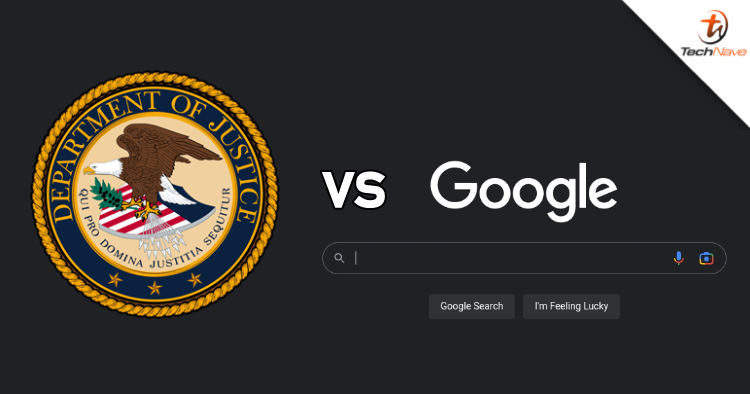Google Faces Forced Sale Of Ad Tech Following Monopoly Ruling

Table of Contents
The Monopoly Ruling Against Google's Ad Tech Dominance
The core issue revolves around Google's alleged abuse of its dominant position in the digital advertising market. Regulators argue that Google’s control over various ad tech tools, including its ad exchange (Google Ad Manager), its real-time bidding platform (Google AdX), and its ad serving technologies, gives it an unfair advantage, stifling competition and potentially harming consumers. This alleged monopolistic behavior has drawn significant scrutiny from antitrust authorities worldwide.
- Antitrust Concerns: The ruling highlights concerns about Google leveraging its dominance in search to favor its own ad tech products, creating a closed ecosystem and making it difficult for competitors to gain a foothold. This preferential treatment is a key element of the antitrust argument. This practice is often referred to as "self-preferencing."
- Impact on Advertisers: Smaller advertising companies may have been disadvantaged by Google's alleged anti-competitive practices, limiting their access to valuable ad inventory and forcing them to pay higher prices. This has resulted in a less level playing field for smaller advertising agencies and businesses.
- Reduced Transparency: Critics argue that Google's opaque ad tech practices lack transparency, making it difficult for advertisers to understand how their budgets are allocated and whether they are receiving fair value for their spending. The lack of transparency has been a major source of complaints from advertisers.
- Key Players Involved: The specific regulatory bodies involved vary depending on the jurisdiction. The European Commission, the Department of Justice (DOJ) in the US, and other global competition authorities have played key roles in investigating and potentially taking action against Google's ad tech practices.
Potential Implications of a Forced Sale of Google's Ad Tech
A forced sale of Google's ad tech assets would have far-reaching consequences. The magnitude of this potential restructuring is significant, given Google's substantial market share in the programmatic advertising and display advertising sectors.
Restructuring the Digital Advertising Landscape
- Increased Competition: The breakup could potentially foster a more competitive advertising technology market, leading to innovation and potentially lower advertising costs for businesses. More players could mean better pricing and more options for advertisers.
- Emergence of New Players: Smaller ad tech companies could gain a foothold, offering alternative solutions and potentially disrupting the established order. This could foster more diverse and innovative ad tech solutions.
- Market Consolidation: Conversely, it’s possible that existing major players like Amazon, Microsoft, or other large tech companies might acquire Google's divested assets, leading to further consolidation rather than increased competition. This could lead to a concentration of power in fewer hands.
Challenges and Uncertainties Following a Divestiture
- Integration Challenges: The complexity of separating Google's ad tech operations and integrating them into new entities presents significant operational and logistical hurdles. This process would require significant resources and expertise.
- Legal Battles and Appeals: Google is likely to appeal the ruling, leading to prolonged legal battles that could delay or even overturn the forced sale. The legal process could take years to unfold.
- Impact on Google's Revenue: The loss of its ad tech revenue stream could significantly impact Google's overall financial performance. Ad tech is a major revenue generator for Google.
The Future of Google's Ad Tech and the Advertising Industry
The outcome of this case will undoubtedly shape the future of the digital advertising industry. The forced sale of Google's ad tech assets, if it proceeds, will create both opportunities and challenges for businesses and consumers alike. Increased competition could potentially lower advertising costs and foster innovation. However, the transition period will be complex and fraught with uncertainty. The long-term effects remain to be seen, but the potential for a more competitive and transparent ad tech ecosystem is significant.
Conclusion:
The forced sale of Google's ad tech following the monopoly ruling represents a pivotal moment for the digital advertising industry. The potential ramifications are vast, ranging from increased competition and lower costs to significant integration challenges and protracted legal battles. The future of Google's ad tech dominance remains uncertain, but the ongoing developments surrounding this case will undoubtedly shape the landscape of online advertising for years to come. Stay informed about the evolving situation surrounding the Google forced sale of ad tech, the potential impact on programmatic advertising, and its impact on the digital advertising world. Understanding the intricacies of this case is crucial for anyone involved in online advertising.

Featured Posts
-
 Rockets Fall To Warriors Trail 3 1 In Series
May 07, 2025
Rockets Fall To Warriors Trail 3 1 In Series
May 07, 2025 -
 Laram Walkhtwt Aljwyt Aljnwbyt Alsynyt Shrakt Jdydt Lrbt Jwy Afdl Byn Ifryqya Walsyn
May 07, 2025
Laram Walkhtwt Aljwyt Aljnwbyt Alsynyt Shrakt Jdydt Lrbt Jwy Afdl Byn Ifryqya Walsyn
May 07, 2025 -
 Warriors Triumph Over Kings Kuminga Returns Milestone Performances
May 07, 2025
Warriors Triumph Over Kings Kuminga Returns Milestone Performances
May 07, 2025 -
 Nba Lyderiu Pralaimejimas Duobeles Analize
May 07, 2025
Nba Lyderiu Pralaimejimas Duobeles Analize
May 07, 2025 -
 Analyzing The Randle Effect Why The Timberwolves Succeed Where The Knicks Failed
May 07, 2025
Analyzing The Randle Effect Why The Timberwolves Succeed Where The Knicks Failed
May 07, 2025
